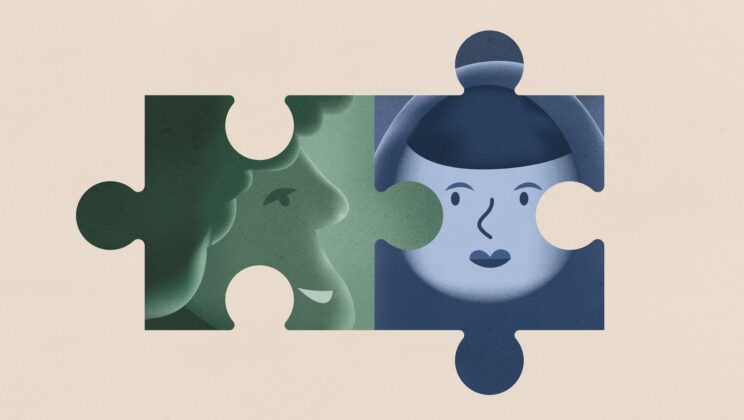Embracing Joy: Coping with Depression During Pregnancy
March 1, 2024
The journey to motherhood is transformative, with moments of both joy and stress. For 10 to 20% of women in the United States, changes during this time can contribute to depression during pregnancy. The risk of depression rises during pregnancy and in the months following birth, but with mental health support, this can be a rewarding and healing time.
What is depression?
Around 280 million people worldwide struggle with depression—and it’s twice as common in women because of things like hormonal fluctuations and stress. Depression symptoms can range from frequently feeling sad to issues like hopelessness and thoughts of self-harm. Depression can affect your sleep, appetite, and energy levels, as well as your concentration and decision-making abilities. If you’re experiencing depression, know that you aren’t alone and it’s a treatable condition.
What causes depression during pregnancy?
Depression usually doesn’t have just one cause. “Depression during pregnancy, much like depression in other phases of our lives, can be influenced by various factors,” said Graciete Lo, PhD, a clinical quality manager at Lyra Health. “These influences can include things like hormonal changes, genetic predispositions, past traumas, social support, and personal history.”
Some factors that may increase your risk for depression during pregnancy include :
- A family history of depression
- A history of depression in previous pregnancies or prior episodes of depression
- Hormonal and neurochemical fluctuations, which can contribute to mood disorders
- Being a younger mother due to the emotional and financial challenges of parenthood at an early stage of life, or an older mother with concerns about potential pregnancy complications or the demands of parenting later in life
- Lacking social support, living alone, distance from family and friends, and changes in relationships
- A history of pregnancy loss or infertility, which can make it hard to feel joyful or positive even in a celebrated pregnancy
- Conflicts with partners, especially during pregnancy—a time of heightened vulnerability, change, and stress
- Expectations about pregnancy, like whether it’s seen as joyous, or stressful
- Socioeconomic disparities, cultural beliefs, structural racism, and institutional barriers in the health care system, which can stand in the way of BIPOC women’s access to critical medical care and support
“These risk factors can apply to both the pregnancy and postpartum periods as they share many similarities,” said Dr. Lo. “There's also growing attention to identifying and addressing various symptoms and conditions during pregnancy such as bipolar disorder, which may have gone undiagnosed before pregnancy but becomes apparent during or after the pregnancy.”
What are the signs of depression during pregnancy?
Looking out for potential signs of depression during pregnancy is important because they can impact both the mother and developing child. Signs of depression during pregnancy are similar to those in other periods of life and may include persistent feelings of sadness, changes in appetite and sleep, increased irritability and nervousness, exhaustion, feelings of being out of control, recurring anxious thoughts, and apathy. It’s essential to check in with a mental health professional if you’re having these symptoms. Severe symptoms that warrant immediate attention include thoughts of self-harm or suicide, thoughts of harm to the baby, paranoia or hallucinations, and extreme and harmful beliefs related to the pregnancy or the baby.
“Involving partners and family is essential, as individuals experiencing these symptoms might not be fully aware of their condition,” said Dr. Lo. “Medical providers should also be attentive to these signs so they’re not dismissed as normal ‘pregnancy jitters’ or ‘the baby blues.’”
How does depression affect pregnancy?
Depression during pregnancy can have ripple effects. For instance, apathy and exhaustion can be stumbling blocks to attending doctor’s appointments or social activities, which can worsen depression.
“Depression may also interfere with the mother's ability to bond with her baby during pregnancy, which could affect the early attachment process after birth, impacting the baby's emotional and psychological development,” said Dr. Lo.
Pregnant people with depression may experience increases or decreases in appetite, potentially interfering with adequate nutrition for themselves and the baby, or contributing to complications with gestational diabetes or preexisting medical conditions. Poor nutrition may also affect how the baby grows, causing the baby to be too big or small. These conditions are linked to a higher likelihood of chronic diseases in childhood and later in life.
Depression during pregnancy can impact other mental health conditions as well. For example, disrupted sleep patterns (a symptom of depression) can potentially trigger manic episodes in people with bipolar disorder, because getting enough sleep plays a big role in managing depression. Pregnancy depression is also the main cause of substance use during pregnancy, which can harm both the mother’s health and the baby's development.
Treatment for depression during pregnancy
Treatment for prenatal depression can include psychotherapy, social support, and medication. “A combination of these is often most helpful,” said Dr. Lo. “It's essential for pregnant women who are depressed to work closely with their health care providers to determine the most suitable treatment based on their unique circumstances.”
Psychotherapy
Therapy is often the first step in treating depression while pregnant. Mental health professionals often draw on cognitive behavioral therapy (CBT) and interpersonal psychotherapy (IPT), which are evidence-based approaches. IPT supports changing relationship roles and dynamics, focusing on how relationships impact depression and how depression affects relationships.
Medication
Many mothers feel hesitant about taking medication while pregnant, but it's important to consult an OB/GYN or a prescriber who specializes in prenatal care. They can discuss the potential risks and benefits of medication during pregnancy. Like other medical conditions, pregnancy depression may require treatment and some medications, like SSRIs (e.g., Zoloft and Prozac), have been used for years with a low risk to both moms and babies.
Social support
Friends, fellow pregnant moms, or people who’ve experienced similar challenges can be important sources of support. OB/GYN offices or local associations can point pregnant women and families to support groups.
Support for depression during pregnancy
If you're experiencing depression while pregnant, know that you aren't alone. Many people have faced similar challenges and have come out the other side stronger than ever. Whether it's therapy, medication, lifestyle changes, or a combination, there are treatment options to help you manage depression during pregnancy. Seeking help is a courageous step toward improving your well-being and the health of your baby.
Get professional support for depression.
You can get started today if your employer offers Lyra.
Author
Sara Schapmann
Sara is a senior content writer for Lyra Health. She has over a decade of experience writing behavioral health and well-being content and holds a bachelor's degree in psychology from the University of Illinois.
Reviewer
Graciete Lo, PhD
Dr. Lo is a licensed clinical psychologist whose research and clinical interests include mental health stigma, care access for marginalized populations, PTSD treatment, and women’s health. Her personal journey with infertility and pregnancy loss inspired her specialization in perinatal mental health.
Explore additional blogs

Mental health treatment
How Chronic Illness and Mental Health Intersect

Mental health treatment
Should I Go to Therapy? How to Know if It’s Right for You

Mental health treatment